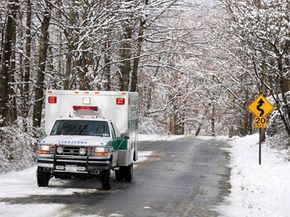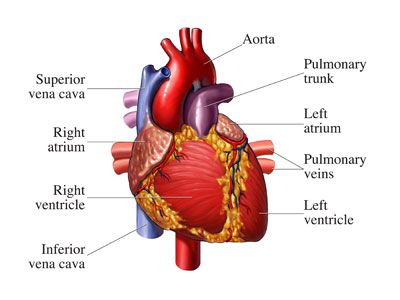From the outside, a heart attack can seem very sudden. But from the inside -- like inside an artery -- it's actually pretty predictable.
Clogged arteries, also called coronary artery disease (CAD), are the primary cause of heart attacks [source: NHLBI]. Arteries get clogged by something called plaque, a fatty substance that builds up on artery walls. Plaque often builds up when there's too much fat and cholesterol in the diet -- and too much cholesterol in the blood. Essentially, stuff starts sticking to the artery walls of the heart as blood passes through, and eventually a blood clot can form. If it's big enough, that clot can block the artery entirely.
Advertisement
In a heart attack, oxygen supply (via blood flow) to the heart has been cut off, resulting in damage to or death of heart muscle. The heart stops pumping if the blood flow isn't immediately restored. When it stops pumping, that's a heart attack. In the United States, about 1.1 million people suffer heart attacks every year, and about half of those heart attacks result in death [source: NHLBI].
Heart attacks seldom happen without some kind of warning. They can often be explained by medical history, including high cholesterol or high blood pressure, or by a family history of heart disease. But can they also be explained by external circumstances, like time of year or time of day? Are there certain occasions that pose greater risk for people with heart disease?
Surprisingly, the answer is yes. For people who have risk factors for a heart attack, like high blood pressure, high cholesterol and coronary artery disease, not only why but also when a heart attack might happen is more obvious than you might think. At certain times of the year, heart-attack rates increase, and the primary culprit in the trend is hard to avoid.
In this article, we'll find out when most heart attacks occur and why they're more likely during those times. With some planning, it may even be possible to decrease the risk of having a heart attack during the high season for coronaries.
Once you know the culprit for the spike in heart attacks, you'll be able to guess which months make up that high season. Here's a hint: It's T minus 1 and counting and you've still got 13 people on your gift list.
Advertisement


